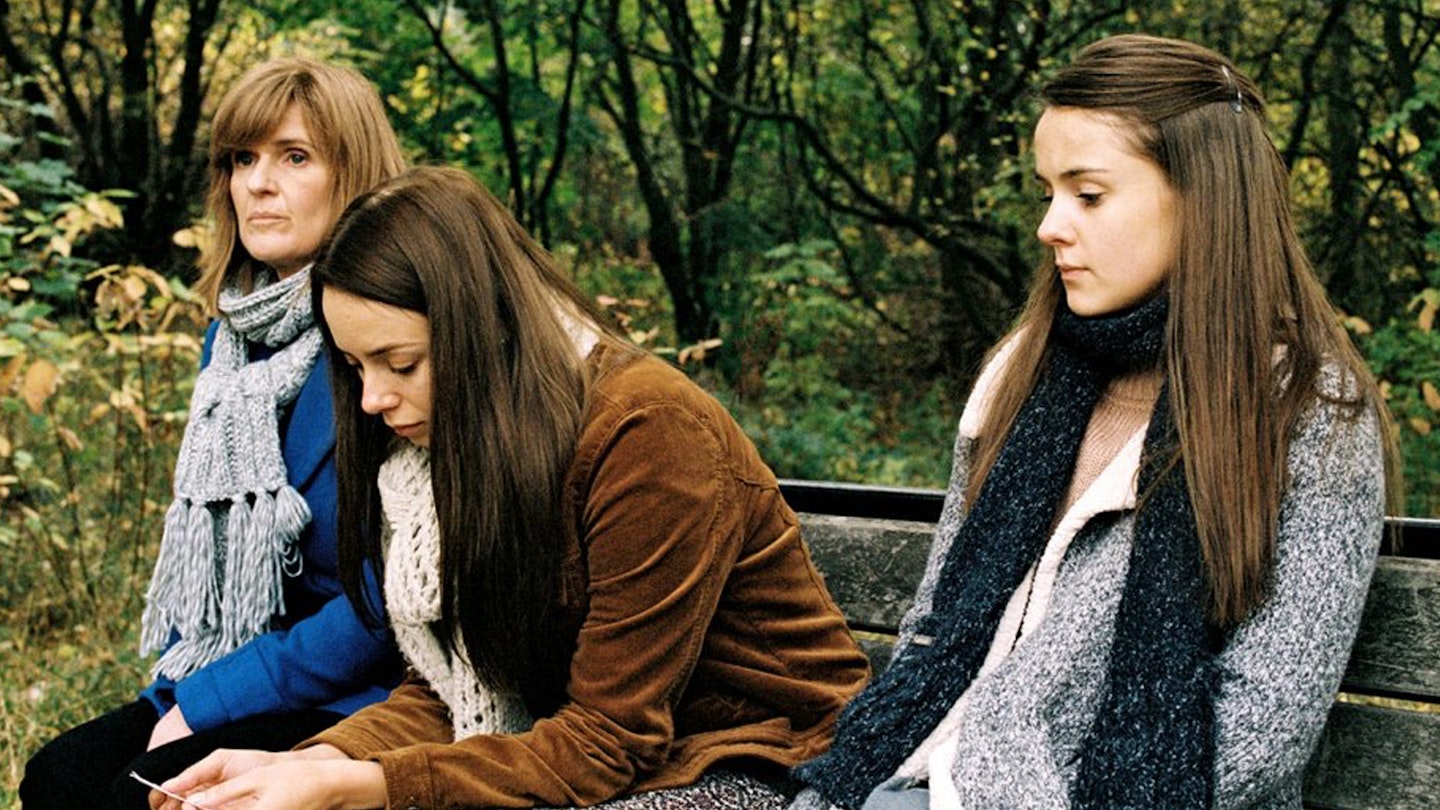What a startling and bold debut feature this is, a thoughtful exploration of faith and, more particularly, fundamentalism — the hope of God and the potential prison of religion.
Movies can feel most miraculous when you have no idea how the hell they got made and it’s hard to imagine the pitch for Apostasy immediately sending suits scrambling for the signature of writer/director Daniel Kokotajlo. Yet this intimate drama — about a mother and daughters bickering with each other, battling and being beguiled by faith — is one of the most assured and compelling British films in years. Don’t be put off by the subject matter or the title (which does seem designed to repel audiences), because although it hints at how Apostasy immerses you in the jargon of Jehovah’s Witnesses, it belies the clarity and accessibility of the storytelling here.
Newcomer Molly Wright is radiant.
The film has a wider relevance than illuminating the inner workings of a religious group considered by many to be a cult. In an age which feels almost medieval in its adherence to belief in the face of facts — from Ayatollahs to Anti-Vaxxers to Trumpians — Apostasy is timely and, frankly, somewhat scary. All of which sounds rather heavy and, yes, this is not an easy watch. But the severity of the atmosphere is leavened by the charisma of the performances. Newcomer Molly Wright is radiant, pulling off the tricky feat of being pious without being cloying (she’s helped by Kokotajlo’s brave decision to have the character broadcast her thoughts and prayers, with the camera switching to handheld when she voices these intimate, interior moments). And there is much more to both sister (Parkinson) and mother (Finneran) than the archetypes they first appear.
Inventively shot by Daphne DP Adam Scarth, who keeps things off-kilter without being ostentatious, the film feels cinematic despite its dour urban environment. And there’s no doubting why the characters would want to escape — seeking certainty and the hope of a better world, beyond.
